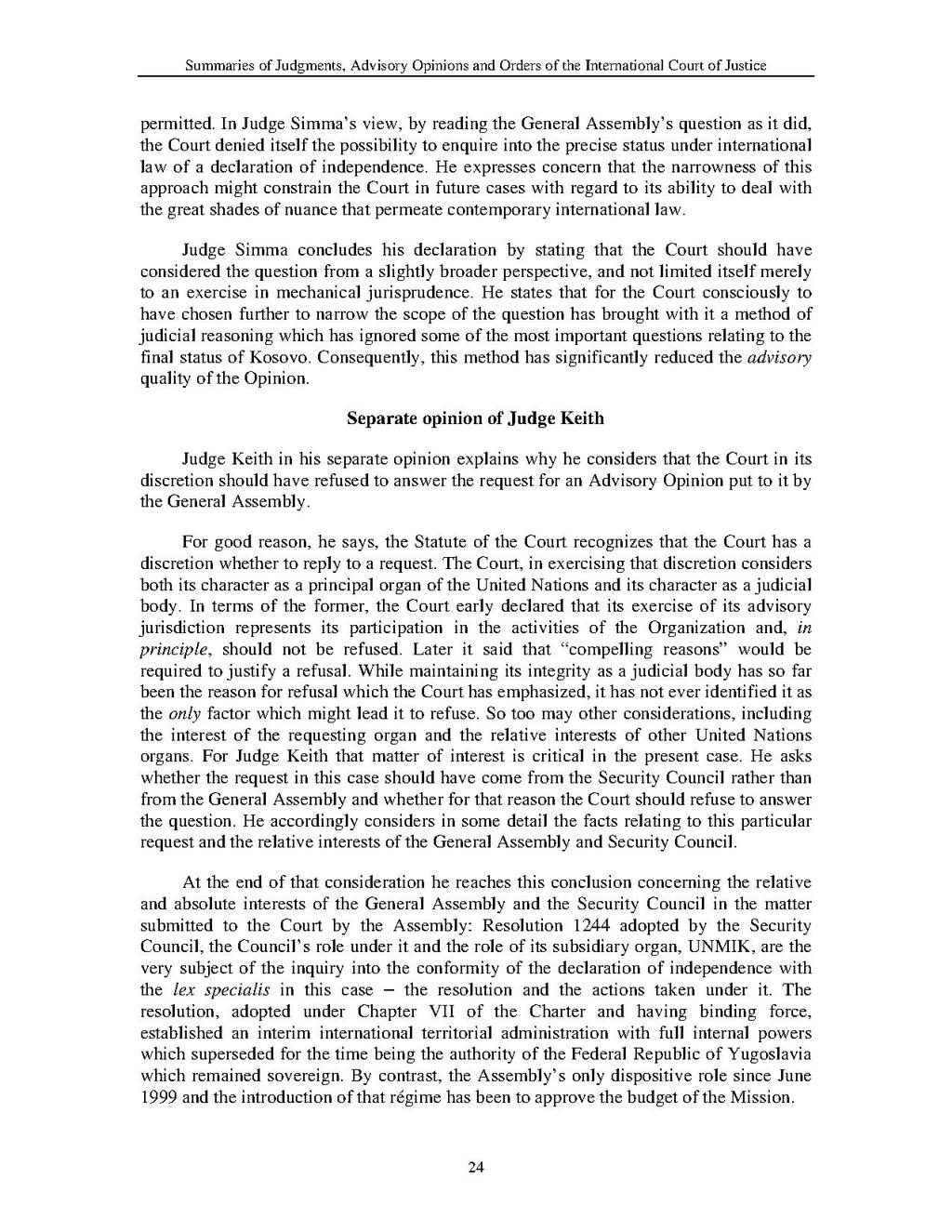Summaries of Judgments, Advisory Opinions and Orders of the International Court of Justice
permitted. In Judge Simma's view, by reading the General Assembly's question as it did, the Court denied itself the possibility to enquire into the precise status under international law of a declaration of independence. He expresses concern that the narrowness of this approach might constrain the Court in future cases with regard to its ability to deal with the great shades of nuance that permeate contemporary international law.
Judge Simma concludes his declaration by stating that the Court should have considered the question from a slightly broader perspective, and not limited itself merely to an exercise in mechanical jurisprudence. He states that for the Court consciously to have chosen further to narrow the scope of the question has brought with it a method of judicial reasoning which has ignored some of the most important questions relating to the final status of Kosovo. Consequently, this method has significantly reduced the advisory quality of the Opinion.
Separate opinion of Judge Keith
Judge Keith in his separate opinion explains why he considers that the Court in its discretion should have refused to answer the request for an Advisory Opinion put to it by the General Assembly.
For good reason, he says, the Statute of the Court recognizes that the Court has a discretion whether to reply to a request. The Court, in exercising that discretion considers both its character as a principal organ of the United Nations and its character as a judicial body. In terms of the former, the Court early declared that its exercise of its advisory jurisdiction represents its participation in the activities of the Organization and, in principle, should not be refused. Later it said that "compelling reasons" would be required to justify a refusal. While maintaining its integrity as a judicial body has so far been the reason for refusal which the Court has emphasized, it has not ever identified it as the only factor which might lead it to refuse. So too may other considerations, including the interest of the requesting organ and the relative interests of other United Nations organs. For Judge Keith that matter of interest is critical in the present case. He asks whether the request in this case should have come from the Security Council rather than from the General Assembly and whether for that reason the Court should refuse to answer the question. He accordingly considers in some detail the facts relating to this particular request and the relative interests of the General Assembly and Security Council.
At the end of that consideration he reaches this conclusion concerning the relative and absolute interests of the General Assembly and the Security Council in the matter submitted to the Court by the Assembly: Resolution 1244 adopted by the Security Council, the Council's role under it and the role of its subsidiary organ, UNMIK, are the very subject of the inquiry into the conformity of the declaration of independence with the lex specialis in this case – the resolution and the actions taken under it. The resolution, adopted under Chapter VII of the Charter and having binding force, established an interim international territorial administration with full internal powers which superseded for the time being the authority of the Federal Republic of Yugoslavia which remained sovereign. By contrast, the Assembly's only dispositive role since June 1999 and the introduction of that régime has been to approve the budget of the Mission.
24
